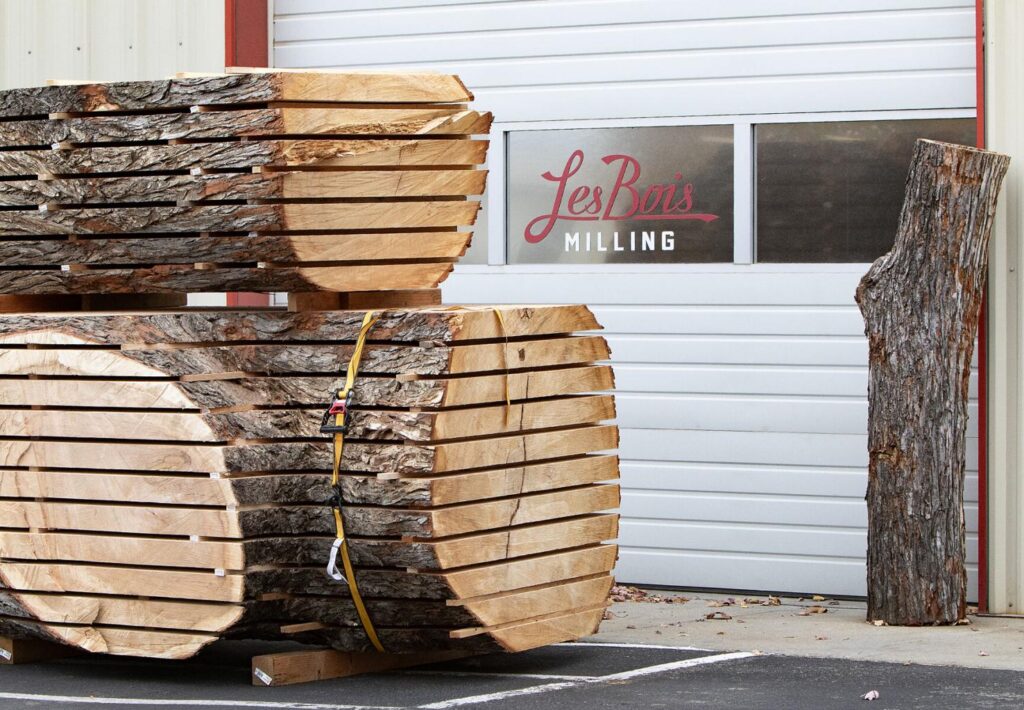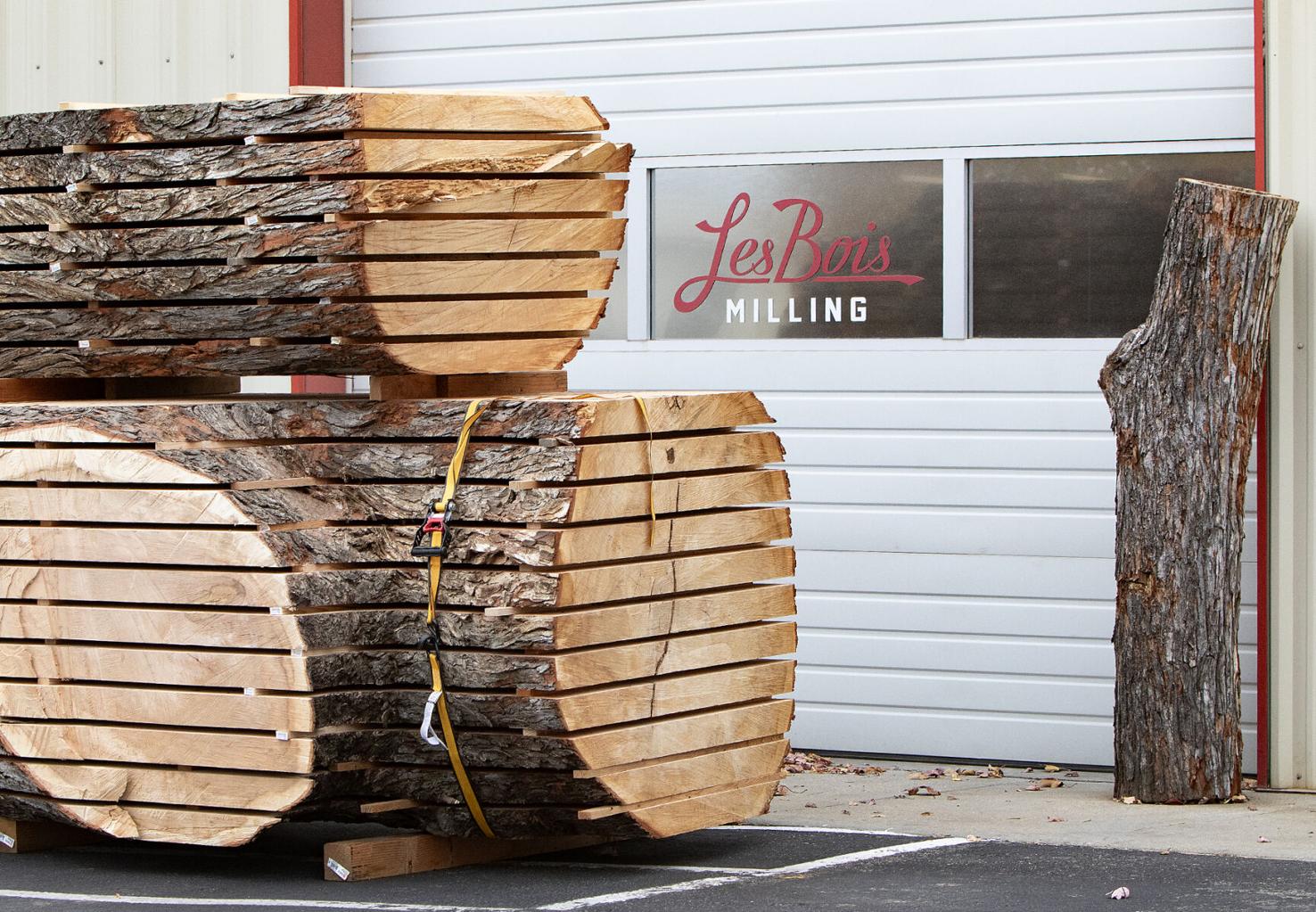
BOISE — As he takes a load of milled wood — oak and elm — out of the kiln where it had been drying for a month and a half, Zane Everman stops to reflect on where it all came from.
“The oak came from a house in Star that had an insurance adjuster come by… they said, ‘that tree’s got a crack in it, it needs to come out,’” the owner of Les Bois Milling relayed. “It’s like the insurance adjuster had X-ray vision, ‘cause it had a huge crack running down through the middle of it, and it was just a matter of time before it crushed their house.”
Everman is a lifelong woodcarver and craftsman. You may have seen his designs at places like Barbarian Brewing, where he made the bar and all the furniture. His latest endeavor was launching Les Bois Milling in the spring, and its goal — in collaboration with partners like the Urban Forestry Products furniture maker and the Treasure Valley Canopy Network — is to turn locally harvested wood into unique creations that customers can know the story behind.
Emphasis on “local” — the farthest away from home base of Boise that a Les Bois tree has come from is Nampa.
“[The best part is] being able to tell a customer that this tree came from a certain area and being able to share with them pictures of the tree standing,” Tom Charters, the owner of Urban Forestry Products, said. “Giving them a story to what each piece of furniture is, which you don’t get when you walk into a big box store.”
Charters typically puts out between 15 and 20 items per year, but now that he is buying already-milled wood from Les Bois, he estimates that he’ll be able to do between 25 and 30 annually in the years to come.
“Woodworkers are definitely my biggest customers, but I’m really trying to find the creative people that want to build their own stuff. The great part about this shop is I cut it, dry it, and I can flatten it here,” Everman said.
Many people might see the woodworking and lumber industries as opposed to conservation, but the Treasure Valley Canopy Network’s executive director, Lance Davisson, stressed that this isn’t the case.
“Trees don’t live forever. Our forests are, in a lot of cases, overstocked with trees. We need to be able to take some trees down to keep the forest healthy. Sometimes a tree is unhealthy and needs to come down,” Davisson said. “We definitely are focused on tree preservation where it makes sense, but when trees must come out, we’d rather they didn’t go to the landfill.”
He urged people who are thinking about removing a tree on their property to consider recycling it by giving it a “second life” through a shop like Les Bois.
“Imagine sitting down to Thanksgiving dinner at a table that’s crafted from a tree that had to come down in your yard,” he said.
While Everman usually sells wood to artisans like Charters, he has hardly abandoned his own creative streak since opening Les Bois. Recently, he completed a table cut from a Russian olive tree, bearing an image of a golf course. Its sand traps, green space and river are made from a mixture of salt and epoxy.
“This table’s going down to a customer in Palm Springs. They’re big golf fans. They didn’t know about it until today, so the cat’s out of the bag,” he said, before revealing that the recipients were his own in-laws.
Photo Credit: A stack of milled wood stands outside Les Bois Milling in Boise, Wednesday, Nov. 20, 2024. Brian Myrick / Idaho Press

